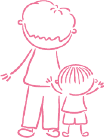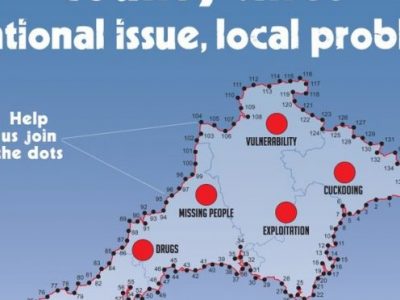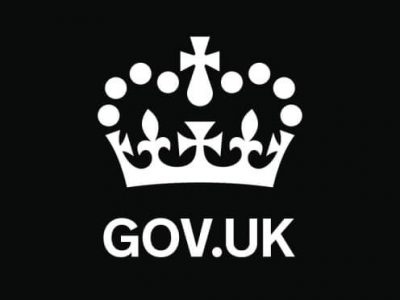
Physical abuse
Physical abuse is deliberately hurting or injuring a child. This could be caused by hitting, shaking, throwing, poisoning, burning or scalding, drowning, suffocating or other physical harm. This type of abuse can leave more than physical marks on the body.
Sexual abuse
Child sexual abuse is when someone persuades or forces a child to take part in sexual activities, or encourages a child to behave in sexually inappropriate ways. It doesn’t necessarily involve physical contact and can also take place online.
Emotional abuse
Emotional abuse is the persistent emotional ill treatment of a child. It is sometimes called psychological abuse and can seriously damage a child’s mental health and wellbeing. Emotional abuse can take different forms.
Online abuse
Online abuse is any type of abuse that happens on the internet, through social media, online gaming or mobile phones. Children and young people may be the victims of online grooming, sexual abuse, sexual exploitation or emotional abuse.
Neglect
Neglect is the ongoing failure to meet a child’s basic and essential needs. This can include not getting enough to eat or being left alone in dangerous situations. Children need adequate food, water, shelter, warmth, protection and health care.
Domestic violence and abuse
Domestic abuse is any type of controlling, bullying, threatening or violent behaviour between people in a personal or family relationship. The most prevalent type of domestic abuse occurs in personal relationships.
Fabricated or induced illness
Fabricated or induced illness (FII) is a rare form of child abuse. It occurs when a parent or carer exaggerates or deliberately causes symptoms of illness in a child, and can cause significant harm both physically and emotionally.
Female genital mutilation
Female genital mutilation (FGM) is when a girl’s genitals are deliberately cut, injured or changed for no medical reason. It is also known as female circumcision or cutting. It is usually carried out on young girls between infancy and 15 years old.
Radicalisation and extremism
Radicalisation is when someone starts to believe or support extreme views, and in some cases, then participates in terrorist groups or acts. It can be motivated by a range of
Child sexual exploitation
Many people have heard about Child Sexual Exploitation happening in other parts of the country but find it hard to believe it's happening here in Devon. Being aware of it is the first step towards putting a stop to it.
Forced marriage and honour killings
Everyone has the right to choose who they marry and when they marry, or if they marry at all. Forced marriage is when someone does not consent and faces pressure to marry.
Child trafficking and modern slavery
Modern slavery is the recruitment, movement, harbouring or receiving of men, women or children using force, coercion, abuse of vulnerability, deception or other means in order to exploit them.
County lines
‘County lines’ is the police term used to describe gangs supplying drugs to suburban areas, market and coastal towns across the UK using dedicated mobile phone lines. These organised crime networks exploit children and young people to store, move, sell and deliver their drugs, often making them travel across counties.
What the partnership is doing to protect children from harm
We want to improve the way this system works, and to strengthen our partnership with schools, health, the police and others to ensure no child at risk slips through the net.

News
7 December 2018
County Lines: National Issue, local problem
What are “county lines”? Urban criminal gangs travelling to Devon and Cornwall to sell illegal drugs. “The brand” – a single telephone number, operated from outside the area, for “customers”
7 December 2018
County Lines – Know the signs
Devon and Cornwall Police have today, Tuesday 3 July, launched a campaign to raise awareness of County Lines and how the public can help spot the signs of such criminal
7 December 2018
Working Together 2018
The new 2018 ‘Working Together for Safeguarding Children’ guidelines were realised on 4th July. Download your copy tri.x have kindly provided a strategic overview of the changes aimed at senior managers and Safeguarding
There aren't any news for this category.
If you are concerned that a child is being abused please call
or email mashsecure@devon.gov.uk.
If it’s an emergency call 999





